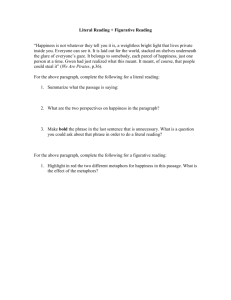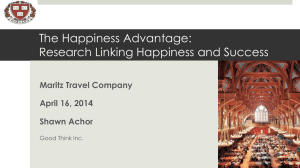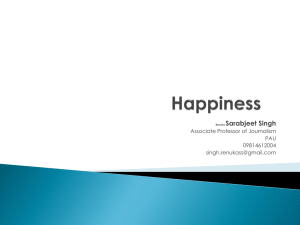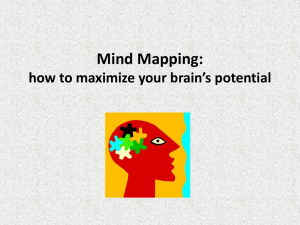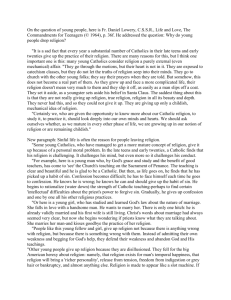Seminar Topics and Readings
advertisement
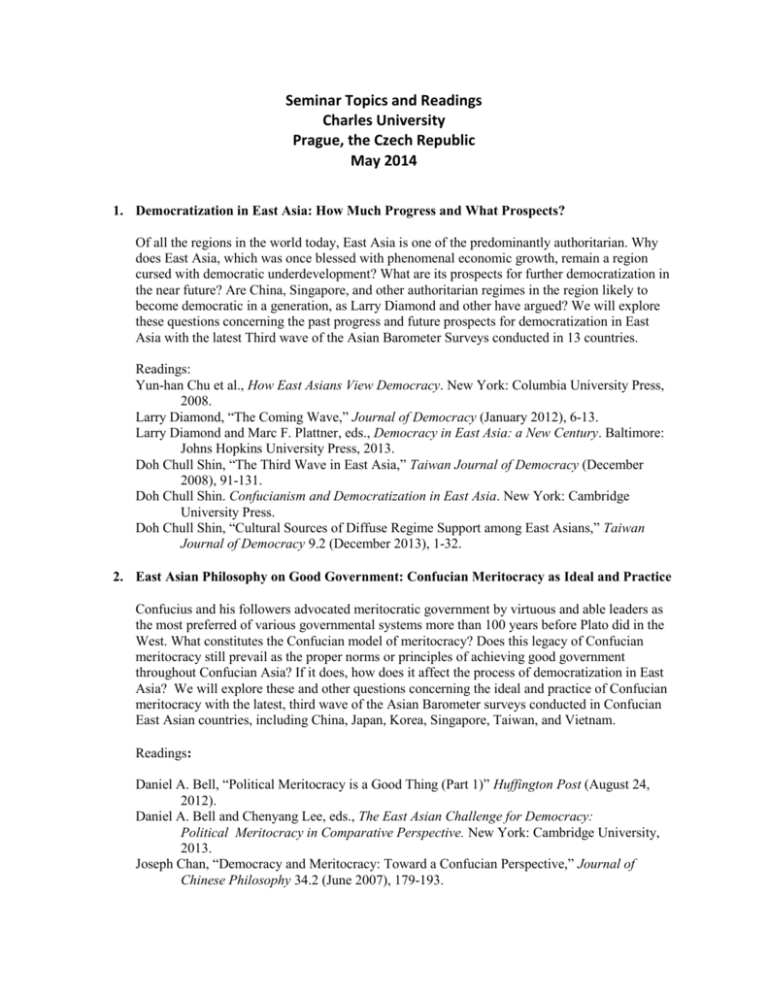
Seminar Topics and Readings Charles University Prague, the Czech Republic May 2014 1. Democratization in East Asia: How Much Progress and What Prospects? Of all the regions in the world today, East Asia is one of the predominantly authoritarian. Why does East Asia, which was once blessed with phenomenal economic growth, remain a region cursed with democratic underdevelopment? What are its prospects for further democratization in the near future? Are China, Singapore, and other authoritarian regimes in the region likely to become democratic in a generation, as Larry Diamond and other have argued? We will explore these questions concerning the past progress and future prospects for democratization in East Asia with the latest Third wave of the Asian Barometer Surveys conducted in 13 countries. Readings: Yun-han Chu et al., How East Asians View Democracy. New York: Columbia University Press, 2008. Larry Diamond, “The Coming Wave,” Journal of Democracy (January 2012), 6-13. Larry Diamond and Marc F. Plattner, eds., Democracy in East Asia: a New Century. Baltimore: Johns Hopkins University Press, 2013. Doh Chull Shin, “The Third Wave in East Asia,” Taiwan Journal of Democracy (December 2008), 91-131. Doh Chull Shin. Confucianism and Democratization in East Asia. New York: Cambridge University Press. Doh Chull Shin, “Cultural Sources of Diffuse Regime Support among East Asians,” Taiwan Journal of Democracy 9.2 (December 2013), 1-32. 2. East Asian Philosophy on Good Government: Confucian Meritocracy as Ideal and Practice Confucius and his followers advocated meritocratic government by virtuous and able leaders as the most preferred of various governmental systems more than 100 years before Plato did in the West. What constitutes the Confucian model of meritocracy? Does this legacy of Confucian meritocracy still prevail as the proper norms or principles of achieving good government throughout Confucian Asia? If it does, how does it affect the process of democratization in East Asia? We will explore these and other questions concerning the ideal and practice of Confucian meritocracy with the latest, third wave of the Asian Barometer surveys conducted in Confucian East Asian countries, including China, Japan, Korea, Singapore, Taiwan, and Vietnam. Readings: Daniel A. Bell, “Political Meritocracy is a Good Thing (Part 1)” Huffington Post (August 24, 2012). Daniel A. Bell and Chenyang Lee, eds., The East Asian Challenge for Democracy: Political Meritocracy in Comparative Perspective. New York: Cambridge University, 2013. Joseph Chan, “Democracy and Meritocracy: Toward a Confucian Perspective,” Journal of Chinese Philosophy 34.2 (June 2007), 179-193. Doh Chull Shin, Confucianism and Democratization in East Asia. New York: Cambridge University Press, 2012. 3. East Asian Philosophy on Happiness: Ancient Visions and Contemporary Realization Confucianism, Buddhism, and Taoism offer contrasting visions of human happiness. We first compare and contrast these visions, and then critically review their specific recommendations for happiness in light of what is known in the recent empirical literature on the subject. Afterwards, we examine the levels and sources of avowed happiness among East Asians with the latest, sixth wave of the World Values surveys conducted in China, Japan, Korea, and Taiwan. Finally, we explore what the findings of these surveys imply for the three ancient visions of happiness. Zhang Guoqing and Ruut Veenhoven, “Ancient Chinese Philosophical Advice: Can it Help us Find Happiness Today?” Journal of Happiness Studies vol. 9 (2008), 425-443. Tu Weiming, “Happiness in the Confucian Way,” in In Pursuit of Happiness ed. Leory S. Rouner, Notre Dame: Notre Dame University Press, 1995, pp. 104-121. Philip J. Ivanhoe, “Happiness in Early Chinese Thought,” in The Oxford Handbook of Happiness, eds. by Susan David, Ilona Boniwell, and Amenda Ayers, et. New York: Oxford University Press, 2013, pp. 263-278. Matthieu Ricard, “A Buddhist View of Happiness,” in The Oxford Handbook of Happiness, eds. by Susan David, Ilona Boniwell, and Amenda Ayers, et. New York: Oxford University Press, 2013, pp. 344-356. Jeffrey Sachs, “Restoring the Virtue Ethics in the Quest for Happiness,” in John Helliwell, Ricard Layard, and Jeffrey Sachs, eds. World Happiness Report 2013. New York: Earth Institute, Columbia University, 2013, chap. 5.
